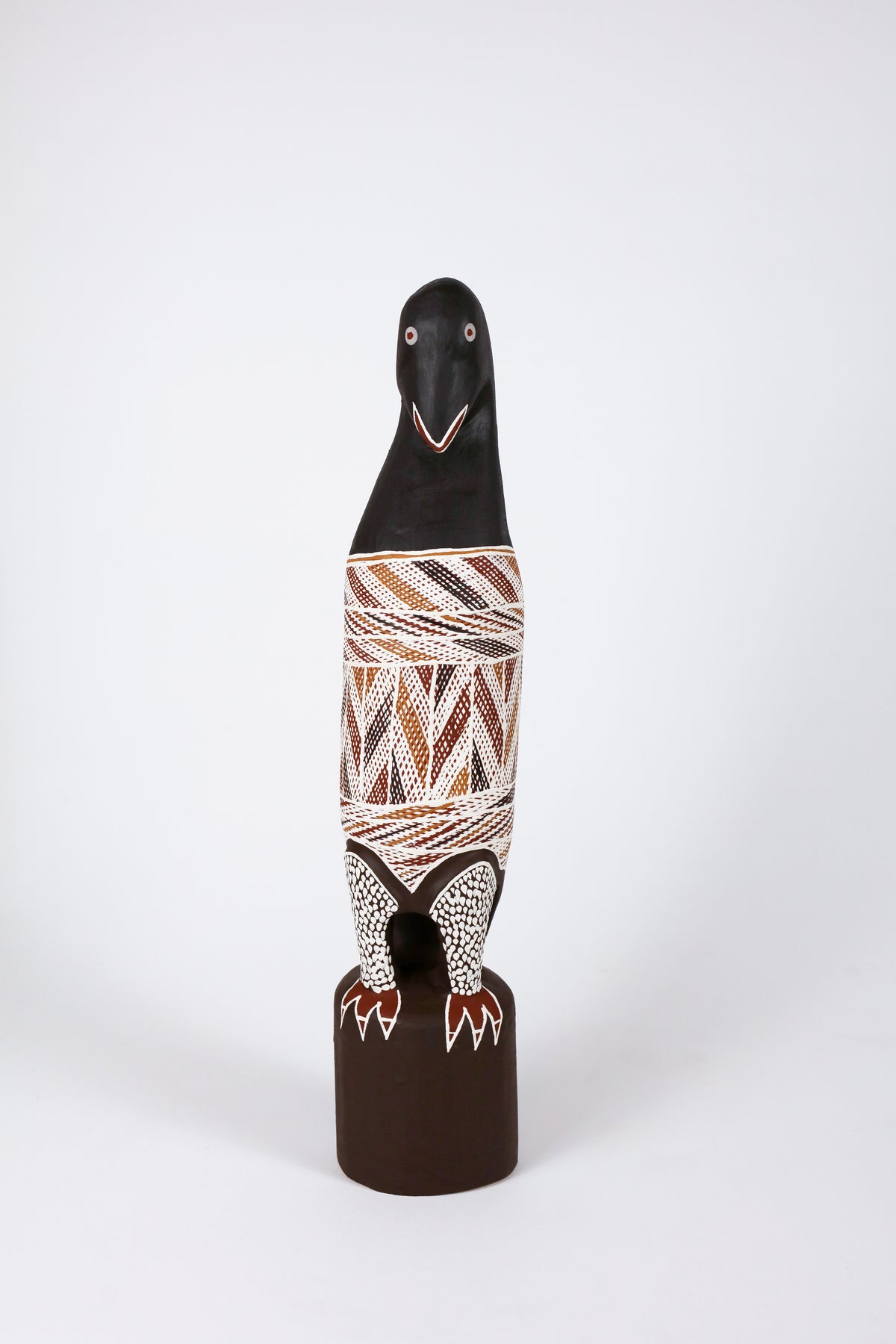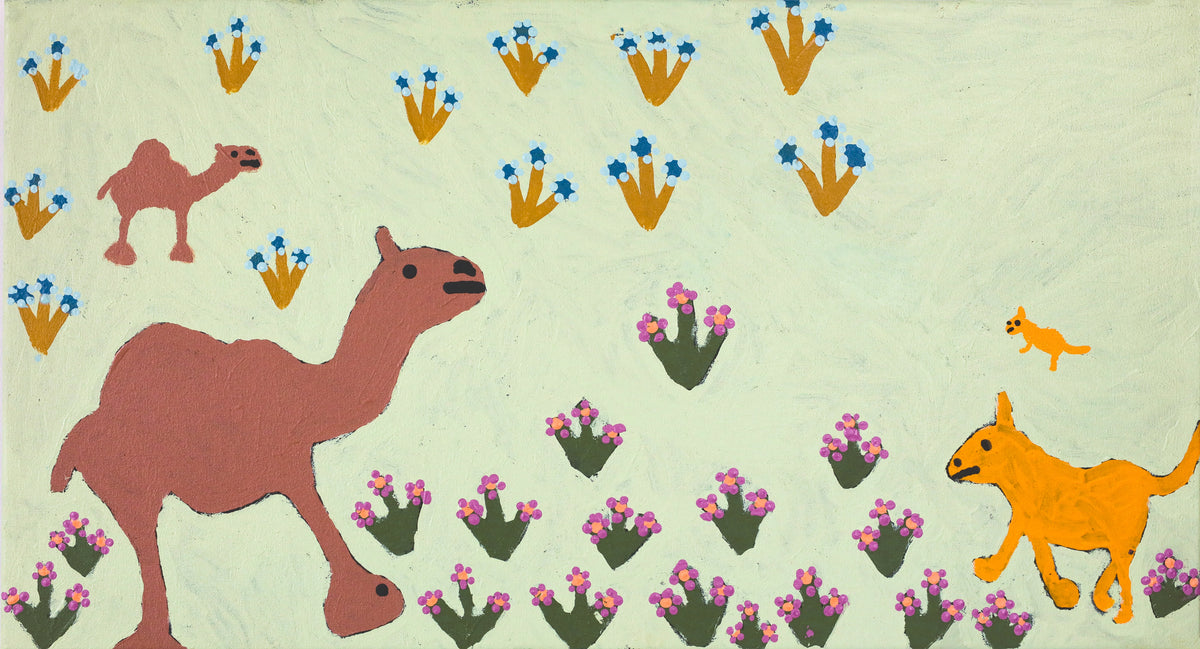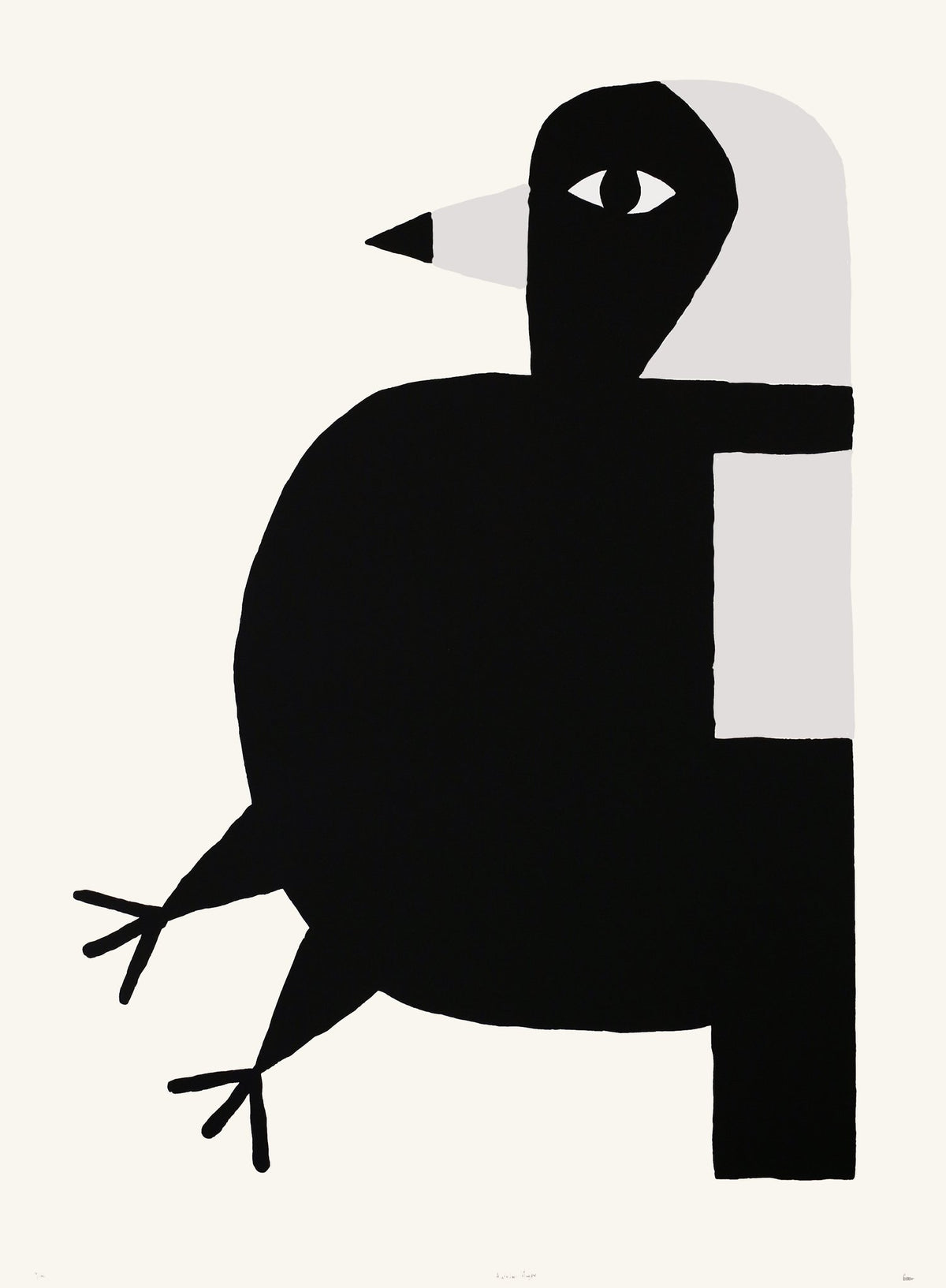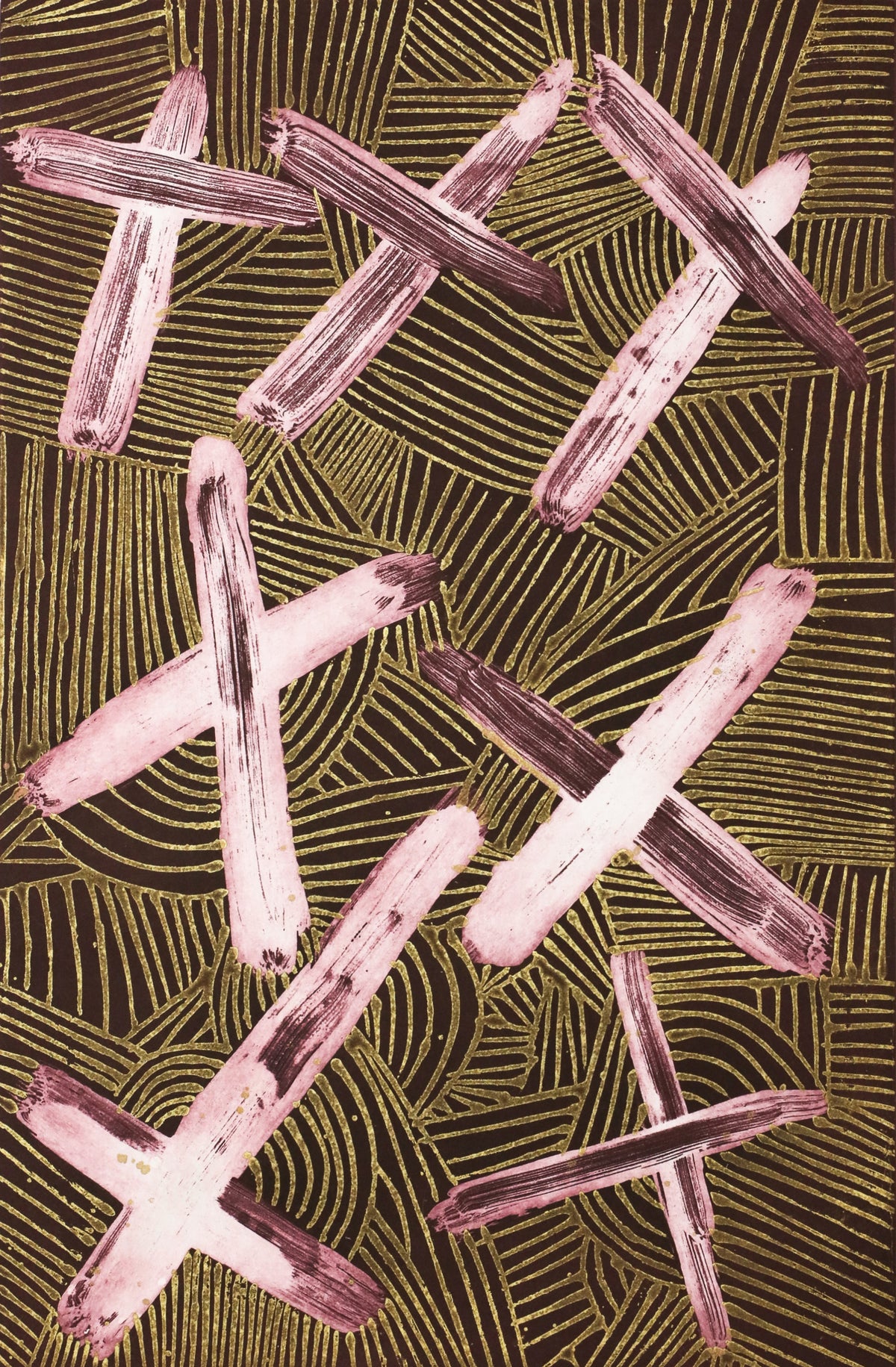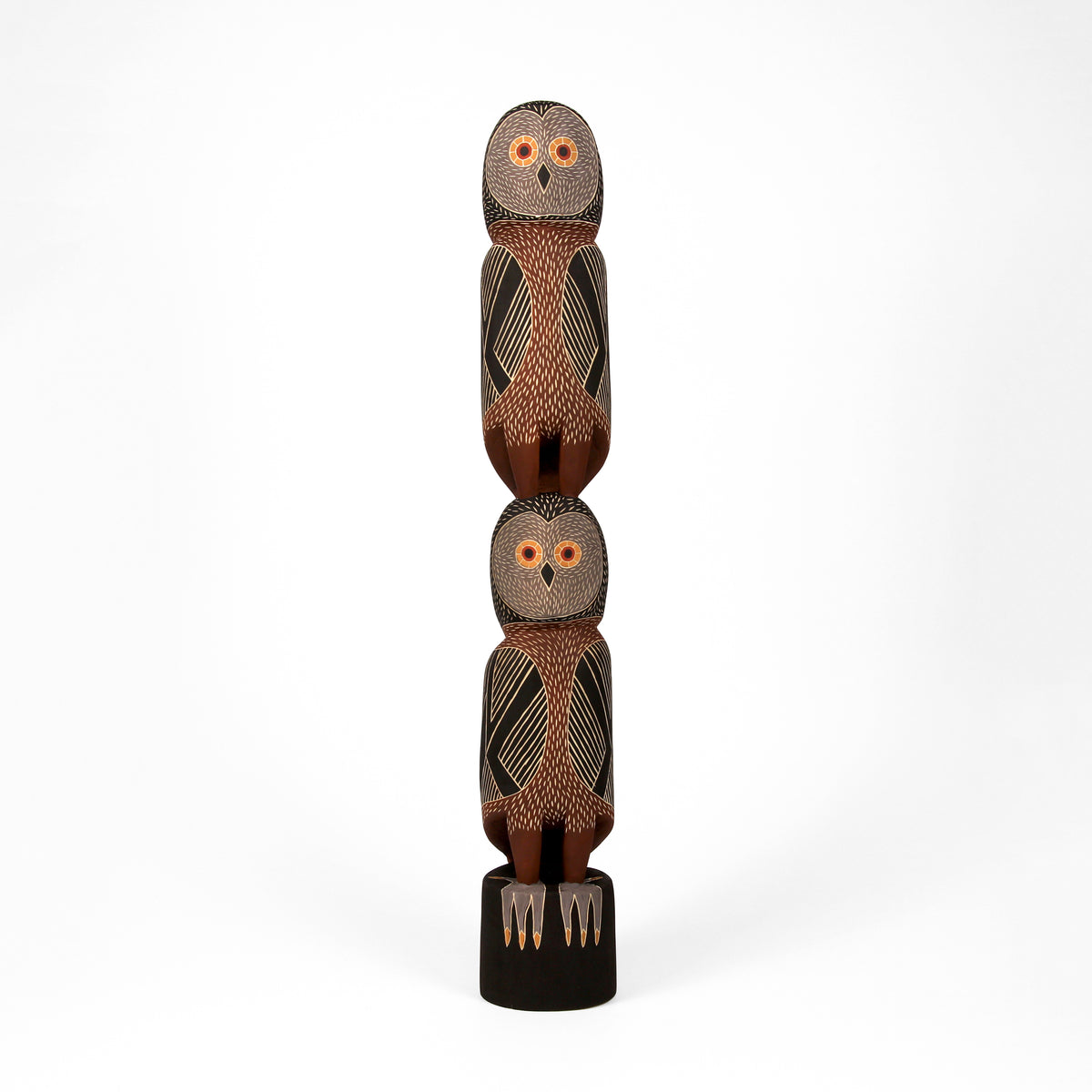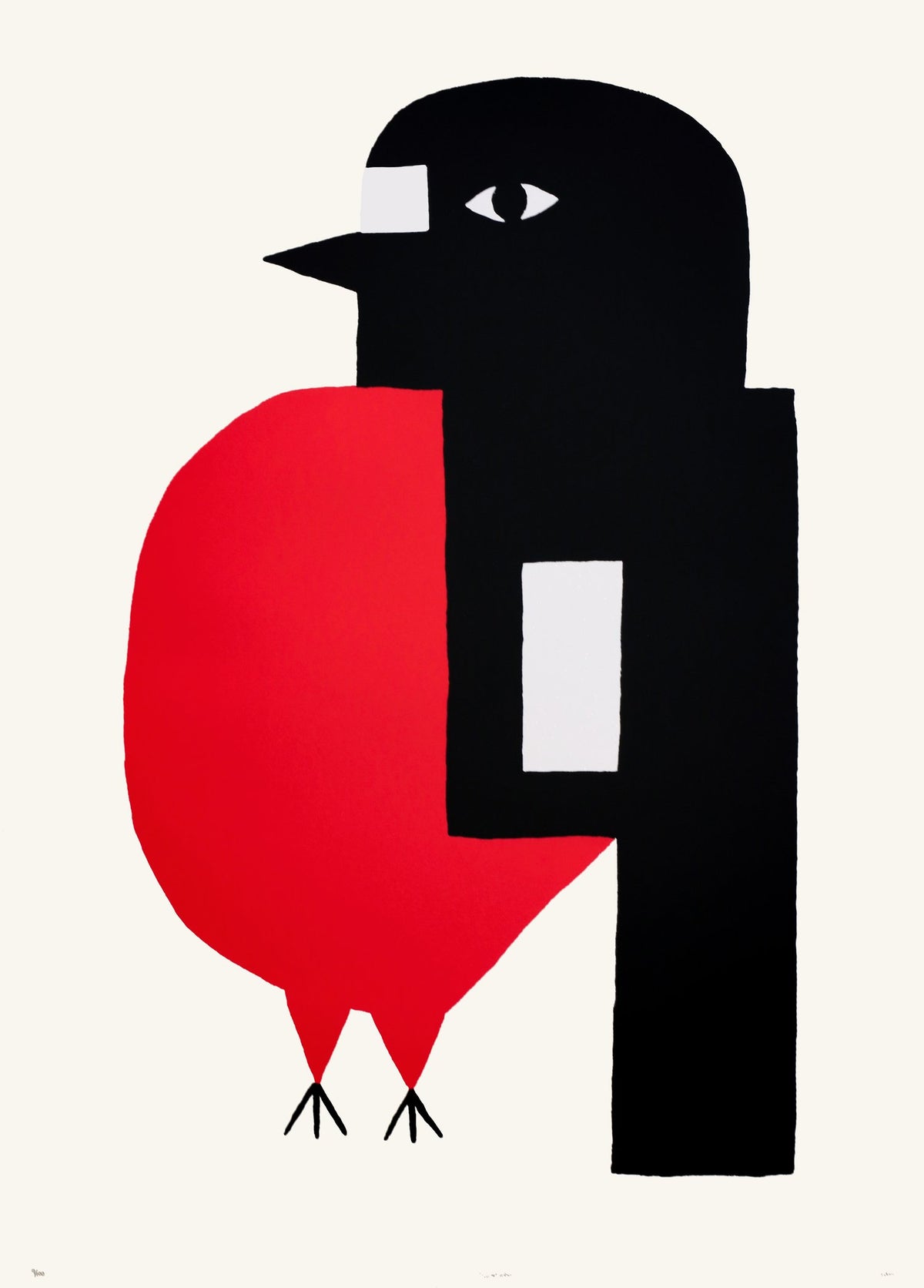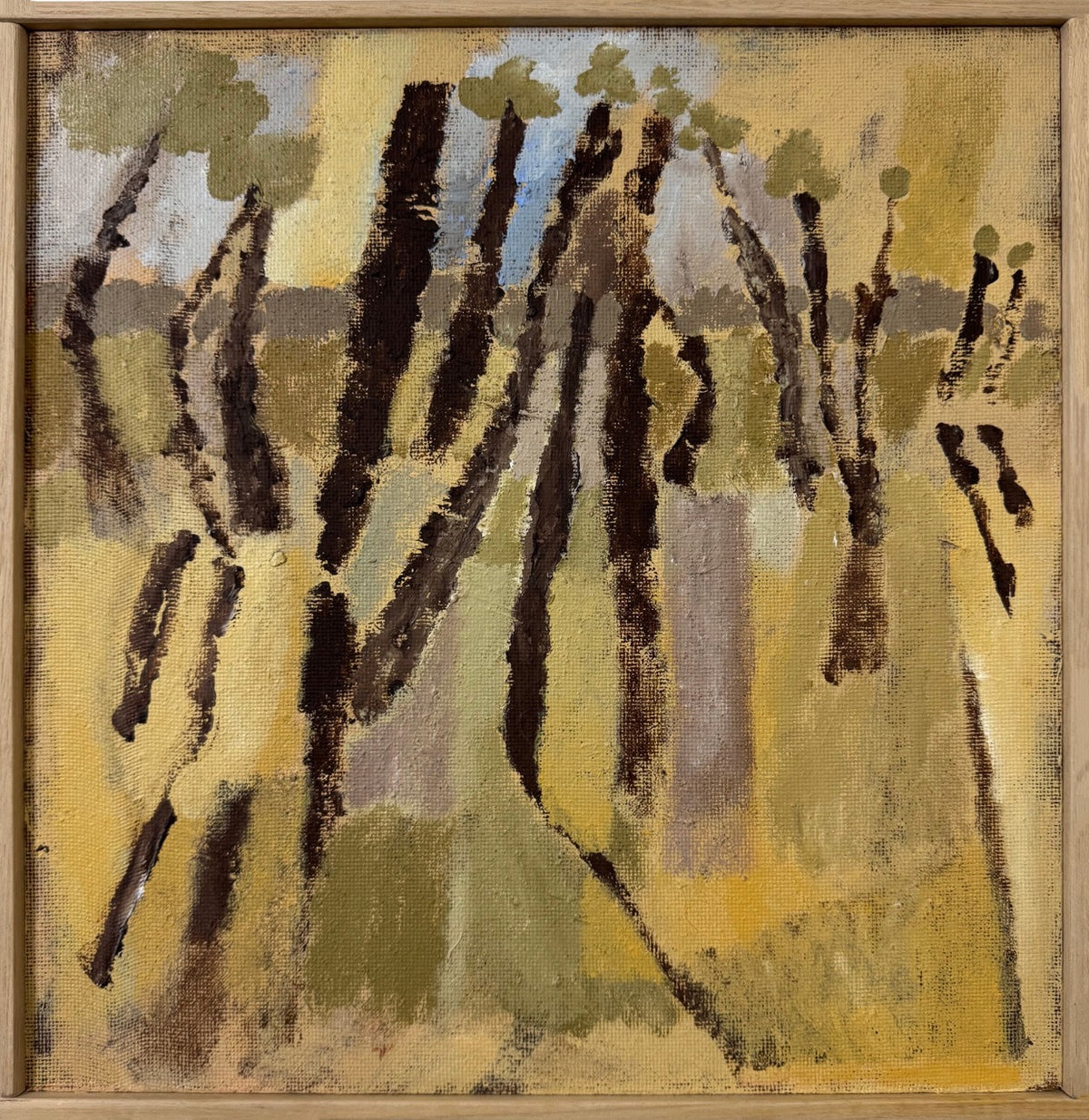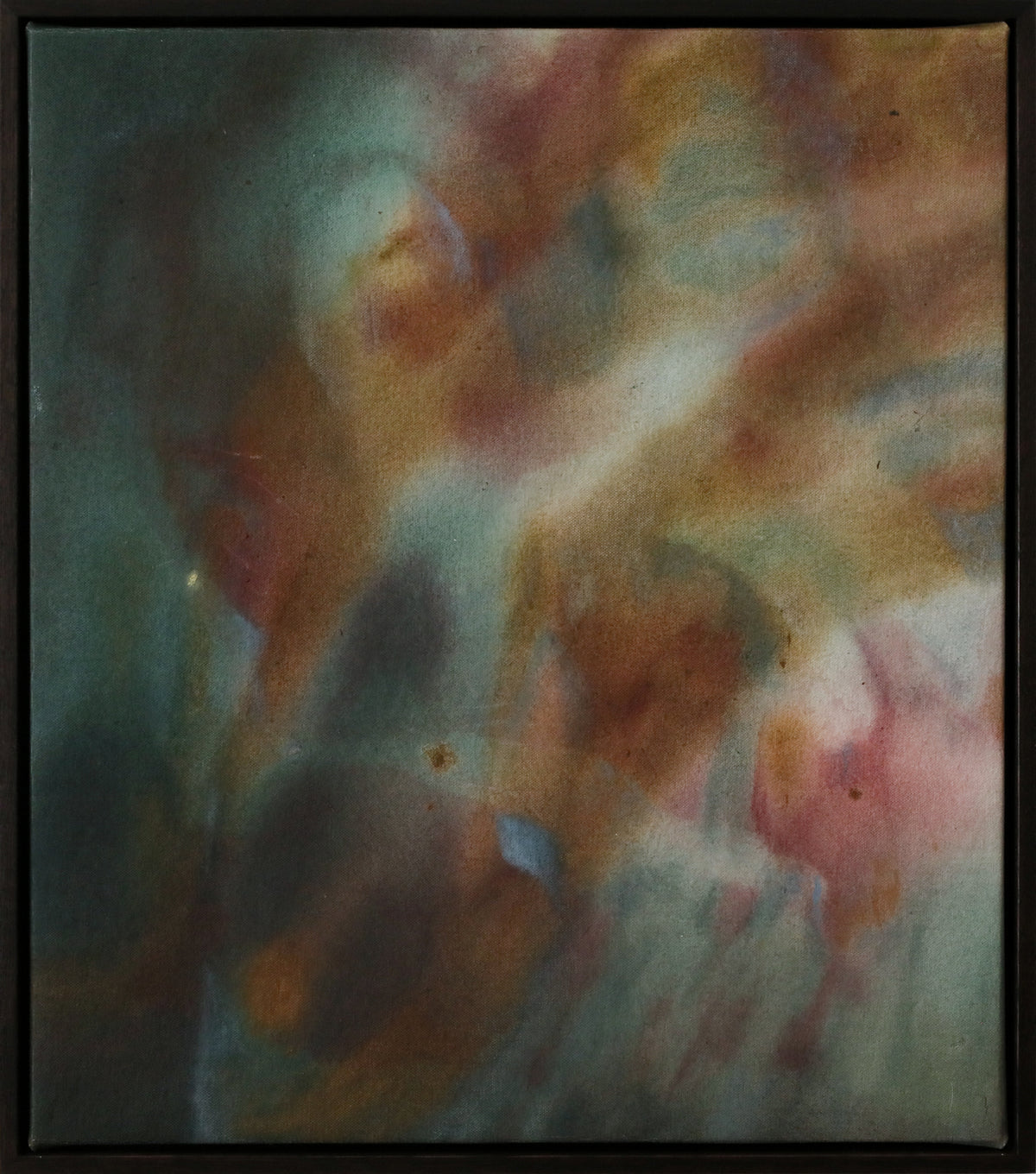Wäk (Crow) 23-248
The sculpture depicts the Wäk, or Crow.
'These wooden sculptures are made from wood which is usually collected in the dry season. We prefer Milkwood and Cottonwood. Firstly, we go to the bush and cut the wood and carry it back to the vehicle. It is often a long walk, through prickly vines and scrub. The bark is taken off and then the wood is left to dry for a short period. It is then shaped by a knife and chisels. It is then sanded smooth and then an ochre paint is selected to go down as the first coat.'
Hand cut from soft milkwood and painted with natural ochres sourced locally, Judy Manany's carved sculptures depict the birds and animals of Elcho Island, NT. The knowledge of where and, importantly when, to collect and slow dry timber before carving, where to source the best natural ochres for painting, and the time meticulously hand carving and painting, then re-carving pattern work is extraordinary.
The traditional knowledge passed down over generations combined with the immense talent and skill involved in all stages of making result in an incredibly unique and powerful collection of new carvings.
Judy Manany is an accomplished artist working from Elcho Island Arts, whose work practice includes painting, carving, and weaving. She is the daughter of Mithinarri Gurruwiwi, a very well-known bark painter who she was very close to. Manany would watch and learn from him as they visited country and he painted.
‘My name is Judy Manany Gurruwiwi. My clan is Galpu and my Moiety is Dhuwa. I learnt to make art from my father who I assisted from when I was 10 years old. I collected materials for him. We made hollow logs, yidaki, bark paintings and carving. I learnt how to make my own art with my own ideas when my father passed
away. I was born in Yirrkala in 1962 and moved to Elcho Island in 1981. I make string bags, weaving, spears, hollow logs, painting, carving, yidaki and womera. All types of art. I paint my totems which are python, file snake (freshwater snake), water lilies and bidum (a type of fish). The dots in my work are Dhuwa patterns which represent the rainbow and file snake. The crosshatch patterns represent fresh water.'
'[I use] Milkwood and cottonwood, because they are the best ones to carve with. We have special trees to choose from for carvings, not just any tree that you see in the bush somewhere. I use ochre because that’s the traditional way. We collect each colour from the world around us and that’s the best colour in my life. We don’t go to the shop and buy it, we have to do hard work to collect it.'
SHIPPING
Brunswick Street Gallery would be pleased to arrange a quote for shipping if you are unable to collect directly from us.
Please be advised that oversized and/or fragile artwork or artworks being sent to remote areas may incur additional shipping costs.
FLEXIBLE PAYMENT
Afterpay, Laybuy
EXHIBITIONS
Artworks purchased from current exhibitions will be available for collection or shipping after the exhibition has ended.
–
